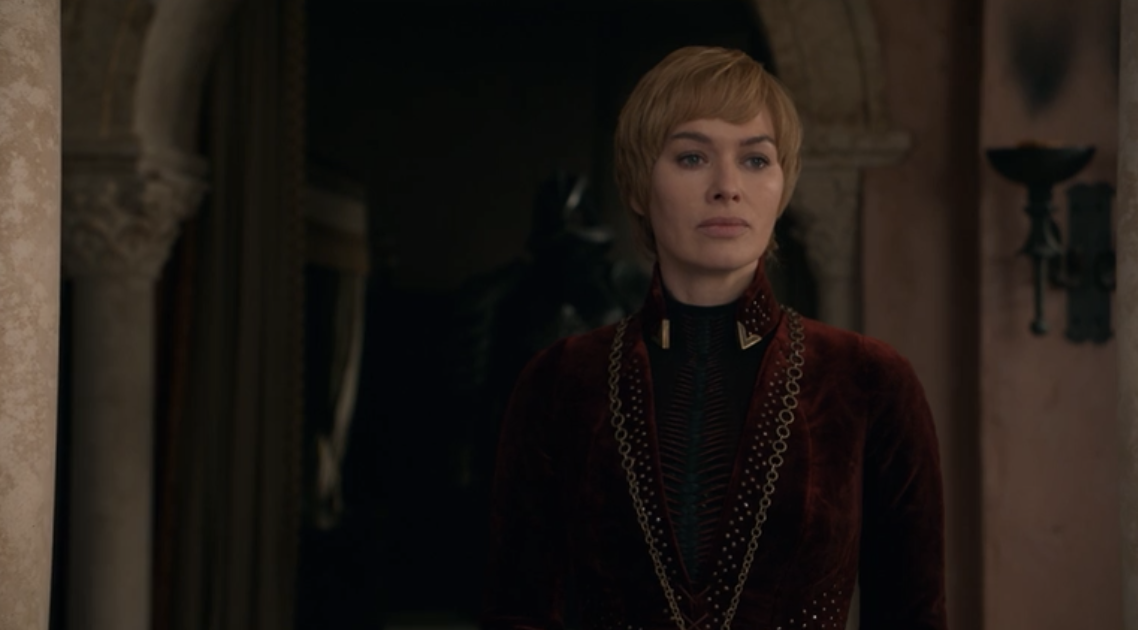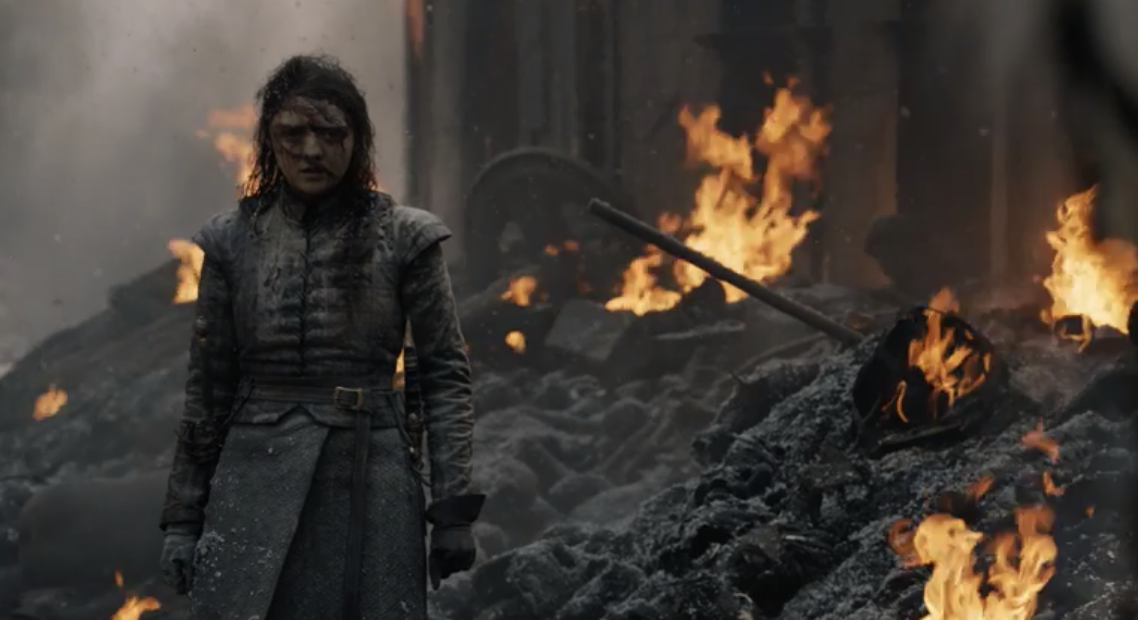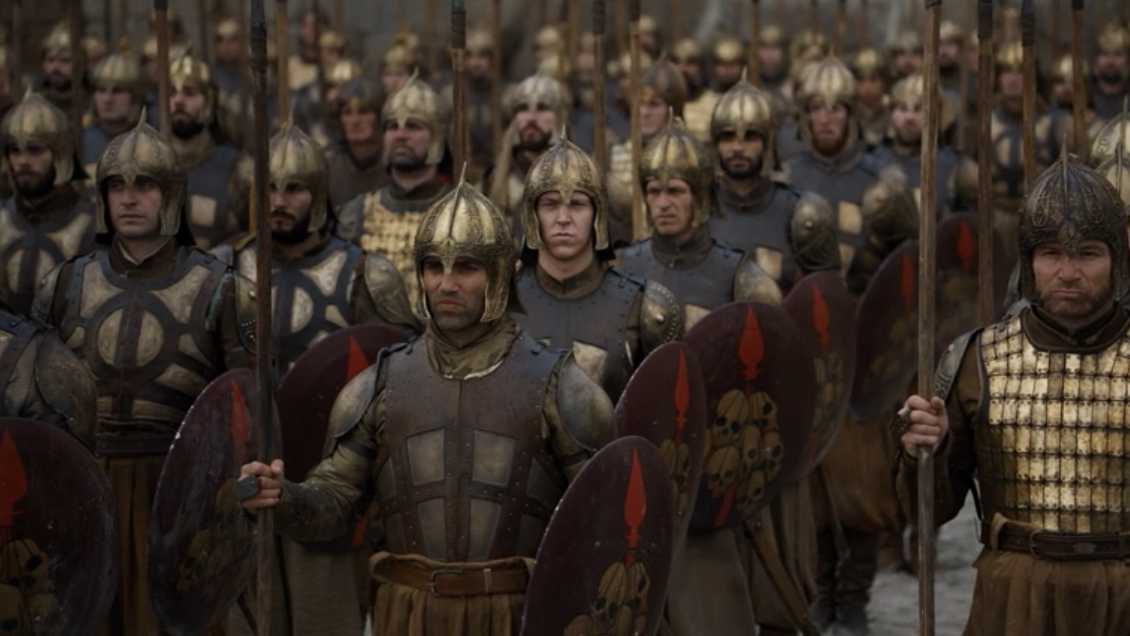Game of Thrones' final season was bad. It still deserved every Emmy it won this weekend.
The HBO epic's worldbuilding was award-worthy, even when its story wasn't


A free daily email with the biggest news stories of the day – and the best features from TheWeek.com
You are now subscribed
Your newsletter sign-up was successful
Game of Thrones' final season was terrible. The highly-anticipated conclusion to HBO's biggest show ever not only failed to meet the lofty expectations of fans, but spectacularly disappointed them. By the end of its run, the show had recorded its first sub-91 percent rating on Rotten Tomatoes in its eight-season history, with an aggregate score of 58 percent. Even Thrones' cast seemed unanimously upset by the turn the show took, with its stars making pained faces at any interviewer who asked about the finale.
Which is why the 71st Emmy Awards are so curious. Earlier this year, Game of Thrones set a new record for the most nominations ever received by a comedy or drama series in a single year, shattering NYPD Blue's quarter-century-old record of 26 noms with an astounding 32. Then this weekend, Thrones led the Creative Arts Emmys pack with 10 wins (HBO's Chernobyl trailed with seven). Despite my own plentiful reservations about the show's final season, I think the Emmys actually got this one right: Game of Thrones deserves all the love.
The Creative Arts Emmys are used to recognize television's "behind-the-scenes" achievements, which include many of the technical and niche categories that are deemed too minor for the more star-studded Primetime ceremony that takes place this coming weekend, when the acting awards and outstanding series statuettes get handed out. But just because the technical awards don't attract the same viewership as the Primetime Emmys doesn't mean they're any less important. Arguably, they are even more essential. After all, it's up to a show's creative teams to create the worlds you enter on screen, whether through costumes or makeup or special effects or music. And at that, Game of Thrones was always brilliant.
The Week
Escape your echo chamber. Get the facts behind the news, plus analysis from multiple perspectives.

Sign up for The Week's Free Newsletters
From our morning news briefing to a weekly Good News Newsletter, get the best of The Week delivered directly to your inbox.
From our morning news briefing to a weekly Good News Newsletter, get the best of The Week delivered directly to your inbox.
When one describes a show as "bad," after all, it often isn't with respect to the technical appearance of a series — one often means "bad" as it relates to the writing and plotting, or sometimes to the unconvincing acting. That isn't always true; Amazon's recent gamble on "the next Game of Thrones," Carnival Row, failed because the show's creative team could never quite get its wonky fantasy elements to cohere. But more often than not, when we describe Game of Thrones' final season as "bad," what we are really talking about are nonsensical character developments, the lack of satisfying payoffs, and how Bran somehow ended up King of Westeros.
Looking at the Creative Arts Emmys alone, though, Game of Thrones' clean-up starts to make a lot more sense. The series won three overarching awards: Stunt Coordination for a Drama Series, Limited Series, or Movie; Main Title Design; and Casting for a Drama Series. Each is easily justified: Thrones relied on dozens and sometimes hundreds of real people to create its massive battle scenes, which could involve everything from soldiers being lit on (real!) fire to knights tumbling off roofs to Arya Stark springing through the dark to K.O. the Night King. Likewise, the show's main title was both epic and functional, reminding viewers of the lay of the land while also changing episode-by-episode to reflect the advance of the Night King or what family held King's Landing. The only award here I might take issue with is casting — Thrones was up against Succession in the category, which has a terrific ensemble — but again, for Emmy voters to recognize the coordination of actors in a show so massive, and with so many moving parts, makes perfect sense.

Other Creative Arts Emmys are given to a shows' individual episodes, with Thrones' "Long Night" episode winning five — that's the one where the Starks defend Winterfell from the attack of the Night King, A.K.A. "the episode that was too dang dark." Yet it was also a visual and especially aural achievement, winning (in the typically garbled language of Emmy awards) Single-Camera Picture Editing for a Drama Series; Sound Editing for a Comedy or Drama Series (One Hour); Sound Mixing for a Comedy or Drama Series (One Hour); and Music Composition for a Series (Original Dramatic Score). It's no surprise when you think of what the creators were juggling in the episode: The metallic shing of swords, ululating Dothraki, the howls of wights and dying men, multiple dueling dragons, and Ramin Djawadi's haunting and understated score — not to mention one tense scene of Arya in the library, done in almost total silence. "The Long Night" additionally won Makeup for a Single-Camera Series (Non-Prosthetic), which seems like a no-brainer when you revisit the soot-covered, blood-drained faces of Winterfell's defenders in what appear to be the losing moments of the battle.
But perhaps the most controversial of Game of Thrones' weekend Emmys were the two awards it received for "The Bells," one of the show's most widely excoriated episodes, in which Daenerys Targaryen massacres King's Landing despite its surrender. I've long argued that the episode was a stand-out, not just of the season but the series as a whole. It won Special Visual Effects and Fantasy/Sci-Fi Costumes this weekend. The latter award might seem like so narrow a category that it'd be a shoe-in, but Thrones had to beat out the iconic costumes of The Handmaid's Tale as well as the more whimsical and showy Good Omens, Series of Unfortunate Events, and American Horror Story: Apocalypse. Thanks to Michele Clapton's magnificent creations — including an armor-dress for Queen Cersei, and the uniforms for multiple warring factions like the Golden Company, the knights of Winterfell, the Dothraki and the Unsullied, and the King's Guard — it did.
A free daily email with the biggest news stories of the day – and the best features from TheWeek.com



Special Visual Effects was also an easy win, as the episode sees the ruin of King's Landing, from blasts of dragon fire to towers that crumble into the sea. Although "The Long Night" got most of the credit for being a practical feat, "The Bells" is the episode that looks the best — a testament to what an enormously talented visual effects team (and a correspondingly enormous budget) can do for a show.
Thrones didn't win every category it was up for this weekend: Drama Guest Actress; Cinematography; and Single-Camera Series Hairstyling were among a number of awards it failed to pick up. And in truth, it will be the higher profile nominations next Sunday that will definitively set the tone for how we remember Thrones' final season, with the show up for another 14 awards, including most acting categories, Writing for a Drama Series and, of course, that biggest get of all: Outstanding Drama Series. For those awards, I believe Thrones has a less of a convincing case; one needs to look no further than comparisons between Thrones' script and the much more worthy Fleabag to begin to see the fantasy epic's numerous limitations.
But when it came to bringing the magic, at least, long will Thrones reign.
Jeva Lange was the executive editor at TheWeek.com. She formerly served as The Week's deputy editor and culture critic. She is also a contributor to Screen Slate, and her writing has appeared in The New York Daily News, The Awl, Vice, and Gothamist, among other publications. Jeva lives in New York City. Follow her on Twitter.
